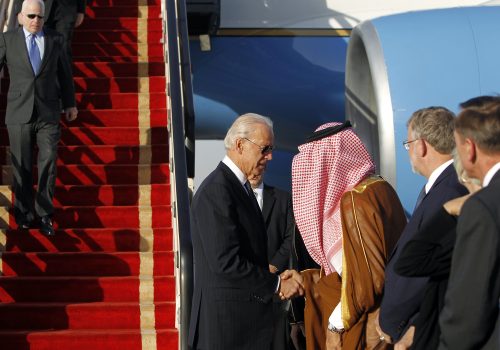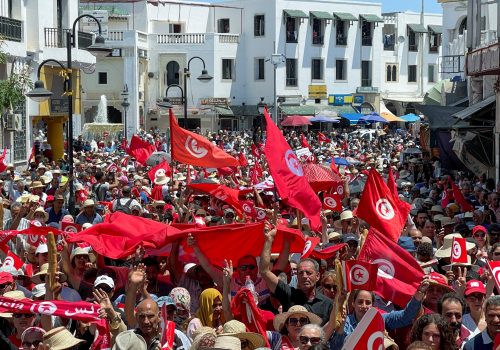North Africa’s transatlantic relations amid change and continuity
Political analysts often look with envy at historians due to their ability to analyze events long after they have occurred, with the luxury of distance and hindsight. To analyze human history and the political and economic developments in numerous states or regions over the period of 2011 to mid-2022 would surely benefit from ten or twenty years of distance and hindsight. Yet for those dealing with events occurring in the geographical dimension of North Africa there is an overwhelming perception of a continuous, often abrupt and contradictory, but increasingly faster evolution of relations between actors—whether small or big, global or regional.
In fact, North African countries (namely Egypt, Tunisia, Libya, Algeria and Morocco) have witnessed an array of political, economic and social transformations which have all influenced geopolitical dynamics in the region. Egypt and Turkey, for example, have been at odds for the past decade due to rivaling political agendas, and in 2013 broke all diplomatic ties by calling back their respective ambassadors. Libya is entering its 11th year of civil war with rival factions contending power over the oil-rich nation through political maneuverings and violent clashes. Morocco and Algeria are still in open conflict over border disputes, opposing geopolitical alliances and an ever-growing arms race. Because of the Algeria-Morocco conflict, the Maghreb was never able to create an economic union trade agreement which would undoubtedly benefit all countries of the region.
The purpose of this report is to identify a potential role for Italy and its diplomacy to play in North Africa, in full agreement and collaboration with the United States and the other main European actors, in resolving some of the thorniest crises in the area and fostering a climate of collaboration around the transatlantic alliance that could help it face the expanding ambitions of rival global powers.
Related content
Image: Demonstrators hold flags as they gather during a protest in opposition to a referendum on a new constitution called by President Kais Saied, in Tunis, Tunisia June 18, 2022. REUTERS/Jihed Abidellaoui/File Photo


